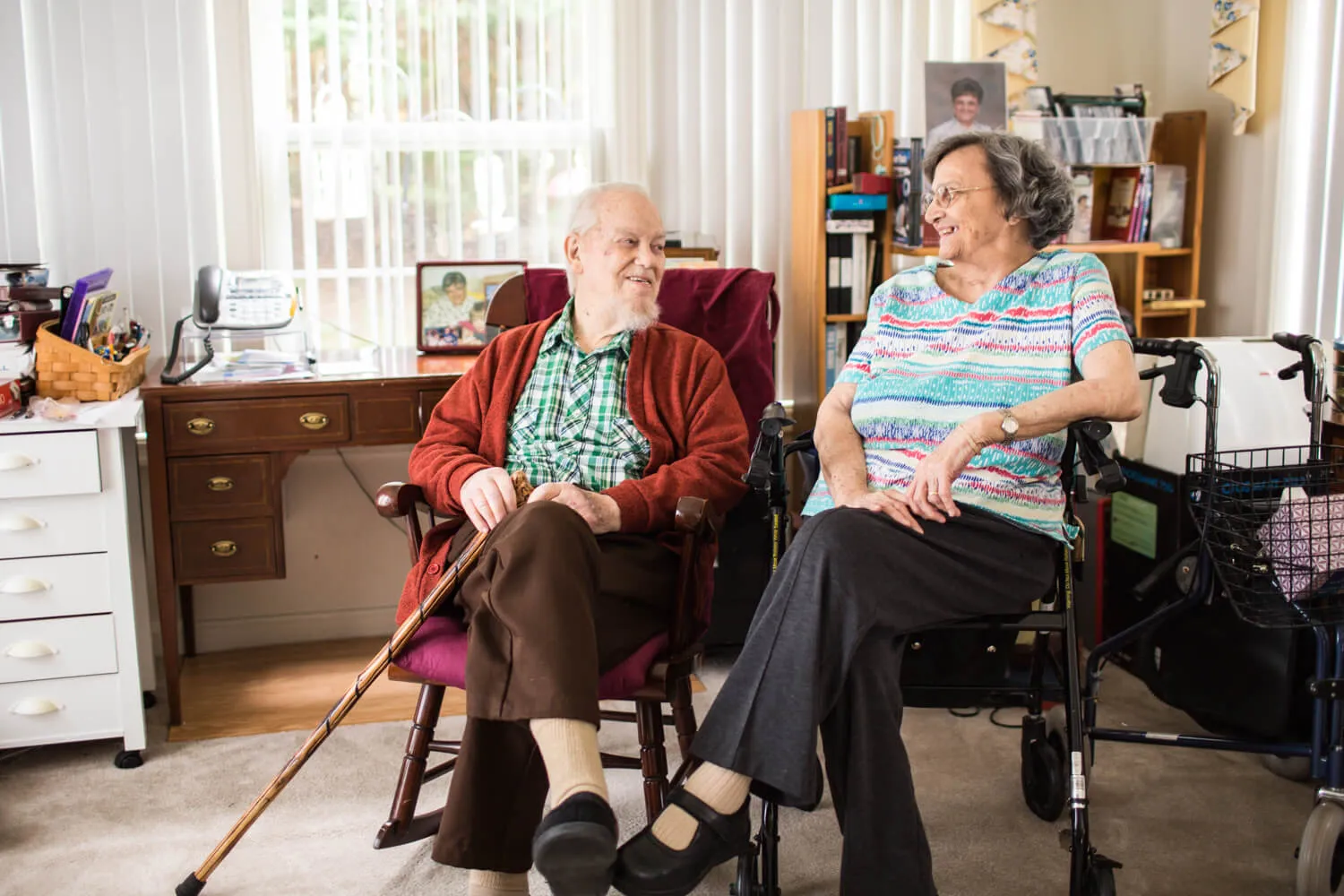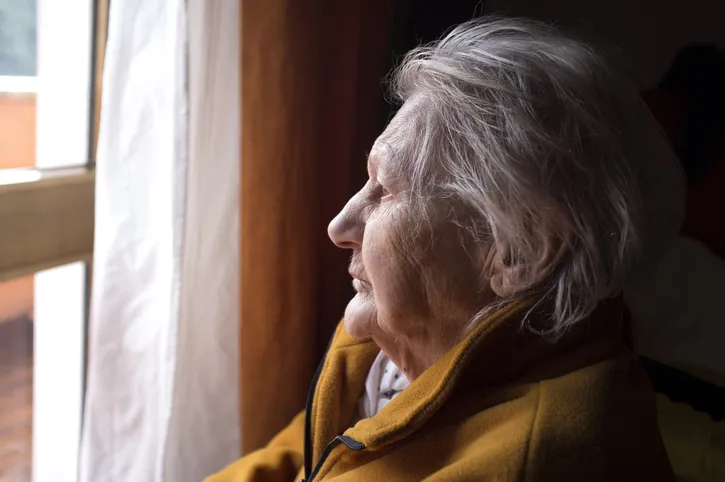The coronavirus pandemic has dramatically shifted the way we interact with each other. Social distancing, also known as physical distancing, is one of the few known ways to reduce the risk of contracting, or spreading, COVID-19. Many cities, counties and states have mandated a period of self isolation to help slow the spread of the novel coronavirus, and it's likely that social distancing will continue for some time.
Seniors at High Risk of Serious Illness From COVID-19
The U.S. Centers for Disease Control and Prevention recommend that people in high risk groups need to take extra care to protect themselves from COVID-19. High risk populations include seniors, people on immune suppressant medications and those who have pre-existing conditions such as asthma, diabetes or heart disease should take extra measures to self isolate.Because coronavirus is a viral infection that impacts the respiratory system, the CDC recommends that older adults stay home as much as possible. As people age, their immune system naturally weakens, and that can make them particularly vulnerable to COVID-19 complications. Although doctors are able to treat some coronavirus symptoms with medications and some severely ill patients have managed to recover after being treated on a ventilator, the unfortunate reality is that outcomes are poor for seniors who contract this virus.
Reducing the Spread With Social Distancing
Self isolation has been embraced by health experts and governments worldwide, leading to millions of people being quarantined in their homes. Restrictions on everyday activities such as doctors' visits, grocery shopping and dining in restaurants have proven effective in preventing further COVID-19 cases and fatalities, however, these social distancing rules have also made it difficult for seniors to get the support they need.Current physical distancing guidelines advise that people should stay at least 6 feet away from each other unless they live in the same household. That means staying away from family members, friends and caregivers as well, which can be especially stressful for seniors. Worse yet, many retirement communities and nursing homes have experienced COVID-19 outbreaks, leading to widespread lockdowns of these facilities.

Healthy People Can Spread Coronavirus
When the coronavirus first emerged, public health experts believed that only symptomatic people could pass the virus on. It was thought that only those with obvious symptoms such as a fever, dry cough and difficulty breathing should self-isolate.As researchers gain a greater understanding of the disease, they've discovered that even asymptomatic people — those who look and feel perfectly healthy — can be COVID-19 carriers. If these carriers come into contact with others, the virus can be quickly spread, and those with weaker immune systems are particularly susceptible.During the early stages of the pandemic, the source of most cases could be traced by public health officials. Overseas travelers were thought to cause most of the early cases of COVID-19 in the United States, however, the virus is now traveling through community spread.Because the coronavirus can remain viable on common surfaces such as handrails, food packaging and even money for days, it's surprisingly easy to contract this condition. Adding to the worry is the fact that COVID-19 is also spread through microscopic droplets produced when a person coughs, sneezes or simply speaks. Social distancing measures are designed to keep people far enough away from each other to reduce the risk of contracting the virus through inhalation of infected airborne particles.
Our home care services range from Transportation to In-Home Nursing Care. Give us a call today toll-free at 1-877-588-8609!
Seniors and Social Distancing
Increasingly, older adults are faced with a difficult choice — do they risk breaking their self isolation to get critical supplies such as food and medication, knowing that not everyone believes in, or complies with, social distancing recommendations and rules?Unfortunately, there's a number of reports of non-compliance with social distancing rules emerging. While most people respect the rules and are doing everything they can to protect themselves and others in their community, some people simply refuse to respect the recommended 6 foot distancing guidelines.Although many stores now offer online ordering, home delivery and curbside pickup services, many older adults don't feel comfortable purchasing their supplies online. Even those who are tech-savvy may find the wait time for home grocery or prescription delivery can be days or weeks.
Keeping Seniors Safe at Home
One of the best ways to protect seniors from COVID-19 is to ensure they can remain in self-isolation. This means making essential supplies such as medications and groceries available without requiring travel outside the home.Unfortunately, there's a number of reports of non-compliance with social distancing rules emerging. While most people respect the rules and are doing everything they can to protect themselves and others in their community, some people simply refuse to respect the recommended 6 foot distancing guidelines.Whenever possible, seniors should ask a loved one, neighbor or friend to do their errands for them. Not only does this ensure that seniors stay safe in their own homes, but it eliminates the risks and worries that others may not respect social distancing rules.Another option is hiring a dedicated caregiver who can provide in-home care and run errands. This approach limits the seniors' contact to a single person, and that dramatically decreases the odds that the older person will be infected with COVID-19.At Nurse Next Door, we understand how stressful these uncertain times can be for older adults and people living with disabilities. Our compassionate, professional caregivers are available to help support seniors during the COVID-19 pandemic - call us for more information.


























